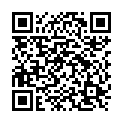|
|
|
| Module code: DFITM-511 |
|
|
4VU (4 hours per week) |
|
3 |
| Semester: 5 |
| Mandatory course: no |
Language of instruction:
Spanish |
Assessment:
Written exam 90 min. (50%) and tests over the course of the semester (50%)
[updated 30.04.2025]
|
DFITM-511 (P620-0686) International Tourism Management, Bachelor, ASPO 01.10.2020
, semester 5, optional course
|
60 class hours (= 45 clock hours) over a 15-week period.
The total student study time is 90 hours (equivalent to 3 ECTS credits).
There are therefore 45 hours available for class preparation and follow-up work and exam preparation.
|
Recommended prerequisites (modules):
DFITM-409 Spanish 4
[updated 28.04.2025]
|
Recommended as prerequisite for:
|
Module coordinator:
Dr. Julia Frisch |
Lecturer:
Dozierende des Studiengangs
[updated 28.04.2025]
|
Learning outcomes:
The initial level is B1+, the targeted level B2.
After successfully completing this module, students will:
be able to reproduce content from news articles, newspaper/magazine articles, interviews and reports
be able to formulate conditions and prerequisites, causes and effects
be able to create and explain their own graphics and tables
be able to analyze and discuss facts, figures and presentations from their own subject area
be able to prepare longer contributions to discussions and defend points of view with arguments
be able to present more complex topics orally and in writing
be able to write their own texts on topics related to their studies
[updated 29.04.2024]
|
Module content:
The content expands on that of Spanish 4.
Consolidating the past tenses of the subjunctive,
Conditional sentences in present and past tenses
Paraphrasing and improving indirect speech in present and past tenses
Improving understanding of relative pronouns and constructions
Formulating descriptions, arguments, interpretations and predictions
Regional studies on tourism in the Spanish-speaking world: challenges, opportunities, risks for the economy, environment, society and culture using selected examples
[updated 29.04.2024]
|
Teaching methods/Media:
The learning content is developed in a communicative and action-oriented manner with targeted listening, reading and speaking exercises in individual, partner and group work. A subject-related presentation on the course content is obligatory.
Short written or oral progress tests are a component of the course.
[updated 29.04.2024]
|
Recommended or required reading:
Multimedia-supported teaching and learning materials to intensify teaching will be provided in the course and via Moodle.
[updated 30.04.2025]
|

